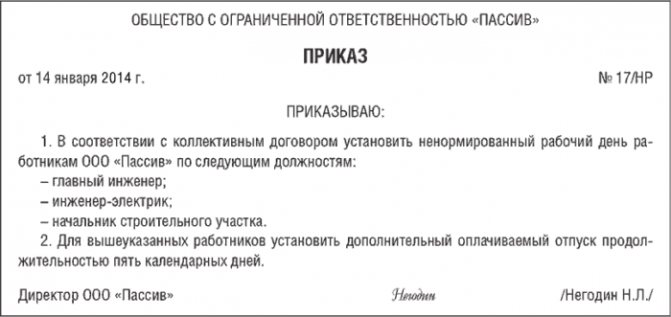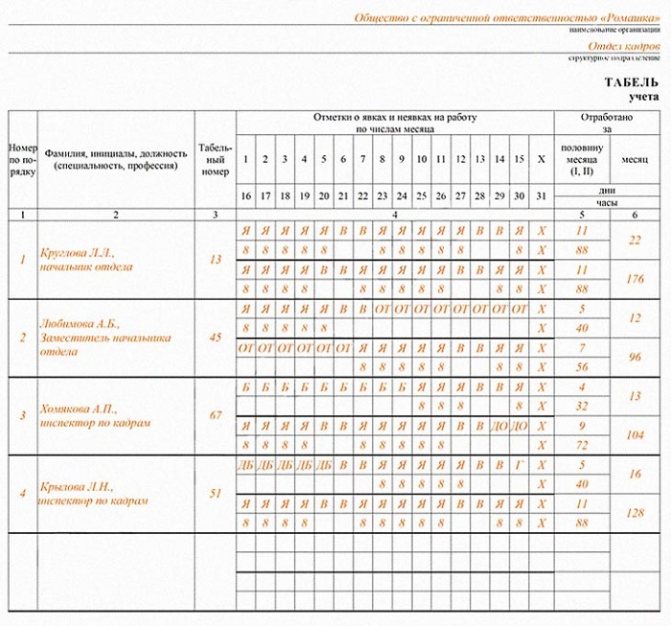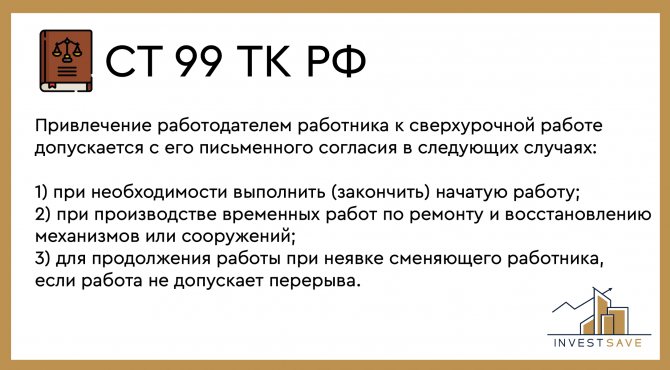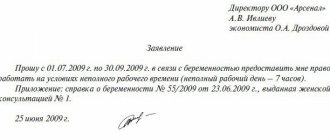Modern market relations, the desire of the employer to most effectively organize their business, minimize costs and maximize profits, force the latter to increasingly attract workers to work outside the established working hours. According to Art. 97 of the Labor Code of the Russian Federation, the legislator provided for two types of such work: overtime and irregular working hours. It is important for all parties to the labor relationship to understand that this is not the same thing. Let's figure out together what an irregular working day is, how payment for an irregular working day occurs, as well as other nuances.
Working long hours is quite common
The concept of irregular working hours
Current legislation, within the framework of the Labor Code of the Russian Federation, defines an irregular working day as a special, special mode of work, according to which individual employees (officials) may, by order of the employer, if necessary, be occasionally involved in the performance of their labor functions beyond the duration established for them working hours. We will consider the features of irregular working hours, an employment contract with irregular working hours, with examples and comments later in the article.
It is important to note that such overtime is not paid in excess of the established wage under standard working hours. That is, if an order on irregular working hours has not been issued against you, or an irregular working day is not specified in the employment contract, then overtime will not be compensated.
Concept and legislative framework
Modern Russian Federal legislation considers the definition of irregular working hours (Article 101 of the Labor Code) as a special labor regime , all conditions and agreements of which are established exclusively by a collective decision, with the mandatory participation of the employer and a representative from the employees.
The bottom line is that representatives of positions specified in the regulation on irregular working hours may periodically be involved by the employer in their direct work activities even after the expiration of the normal working day (for example, after work, or on weekends).
However, this must be specified in the employment contract with the consent of all parties.
What period of work can be considered “irregular” is a fairly common question that employees regularly face when applying for a job.
You can find a sample provision for irregular workers here.
At the same time, not only ordinary workers, but also employers themselves are not in all cases able to competently and consistently explain (including to their employees during employment): what is work activity with an irregular schedule. As a result, complex conflicts often arise, which sometimes have to be resolved through litigation.
According to the law, the employment contract or the local laws of the company’s work schedule must list all direct responsibilities without exception , as well as a full description and description of the scope of work of the employees for whom the irregular working hours procedure is introduced.
Read this article on how to draw up an employment contract with irregular working hours.
Equally important is the clear and consistent familiarization of the employee with all corporate official documents and regulations directly related to his activities as part of this organization.
This is important to do when hiring before signing an employment contract, since it is important to indicate that the employee is aware of the existence of a system of irregular working hours, and also that he is clearly aware of his responsibilities in accordance with the employment agreement in this context.
Often, when applying for a job, an applicant fills out a questionnaire in which there is a question about agreeing to work on an irregular schedule.
In the event of litigation, where the plaintiff may try to prove that the employment contract did not indicate certain responsibilities of the employees, which means the defendant is obliged to pay certain compensation.
The use of an irregular labor regime in budgetary organizations with a fixed salary may be allowed in special cases, when using the labor of persons working in specific positions specified in the relevant lists.
The introduction of a system of irregular working hours in a personal form is carried out according to the order of the head of the organization with notification to the employee no later than two months.

Employees for whom a general procedure for irregular working hours has been determined are freed from the need for any work activity on weekends and holidays, except in emergency situations, as well as situations initially discussed and agreed upon in the employment contract or local work schedule instructions.
If the employment contract does not contain any clauses regarding such work issues, then isolated cases of work during the period described above should be compensated in accordance with the general procedure.
Employees working under an irregular system may be assigned work under their work contract that will take more time to complete than standard working hours. Engaging these workers in this type of activity is not classified as overtime and is not paid overtime.
An irregular working day is a special labor regime, with special labor criteria, in which, according to Article 119 of the Labor Code, the employer is obliged to provide the employee with annual compensation in the form of leave (in addition to the main one).
The minimum amount of additional leave is three days , but the actual duration of paid leave when working in irregular hours is indicated when drawing up the corresponding employment contract.
At the same time, according to the order of Rostrud dated May 24, 2012 , leave is granted to any employees working on an irregular working day system, regardless of the factors that attract them to work outside the standard working day.
Leave may also be granted to persons who combine part-time work and irregular work.
The employee, according to Art. 126 of the Labor Code, has the right to go to the employer with a request to replace paid leave with cash payments. But the employer is required by law only to promptly pay compensation to the employee in the established amount, and the employer can change the type of compensation at his own request.
What does the law say about long working hours?
One of the key problems is that the Labor Code of the Russian Federation does not contain either norms or criteria for determining the norms of acceptable processing under NSD, thereby creating a situation for potential abuse of administrative resources by the employer.
Also, the legislator does not highlight the grounds on which this regime can be established for employees, leaving the issue to the will of the employer. But the law clearly states the need to make decisions on irregular working hours, taking into account the opinion of the trade union. As we see, weak legislative regulation of certain aspects gives rise to situations of abuse of rights on the part of the employer.

Long working hours can be used as an abuse by employers
Definition of valid time
Labor legislation defines working hours as the time during which an employee must perform work duties. Normal working hours cannot exceed 40 hours per week. The employer is required to record the time actually worked by each employee. There are restrictions on overtime work, which is paid additionally and is often confused with irregular working hours. Irregular working hours should be distinguished from overtime.
For irregular working hours, one wage system is provided. In turn, overtime is paid for as work “above the norm” at a different rate.
Limitations of non-standardization
Unlike overtime, for which the law directly provides restrictions: no more than 120 hours per year and no more than 4 hours in two days, an irregular schedule has no legal limits.
Despite the fact that the Labor Code of the Russian Federation does not contain direct restrictions on the establishment of an irregular schedule for certain categories of workers, such a regime is not recommended for the persons listed in Art. 92, h.h. 1.2 tbsp. 94 Labor Code of the Russian Federation. This applies, for example, to workers under 18 years of age or disabled workers.

Irregular schedules are not recommended for minors
Restrictions on the introduction of irregular working hours may be provided for by other regulatory documents. For example, it is impossible to establish an irregular working day for truck drivers.
For citizens who work part-time, an irregular working day can be introduced only if such workers have a part-time working week, but with a full working day (shift) (Part 2 of Article 101 of the Labor Code of the Russian Federation). This is most important for people who combine work and study.
Is it necessary to record irregular work hours?
Despite the fact that an employee is not entitled to additional payment for work under irregular working hours, records of irregular working hours must be kept (Part 4 of Article 91 of the Labor Code of the Russian Federation). This can be done in a separate journal, developed, for example, on the basis of the unified form No. T-13 “Working time sheet” (Decree of the State Statistics Committee of January 5, 2004 No. 1).
Time tracking
Work time records should be kept for each employee, excluding positions that do not provide for the possibility of such records.
However, these are internal corporate conventions, since the federal Labor Code, which officially regulates the recording of employee time, does not describe any direct exceptions. The Labor Code states that an employer must regularly keep track of the time worked by any of its employees.
Employees are paid wages precisely after checking the time sheet , and working time allocated above the standard working day during irregular working hours is not subject to overtime pay.

Taking into account the above information, today there are 3 main principles of approach to the problem of accounting for overtime work during irregular working hours:
- In the overtime work report sheet, you simply need to indicate the actual amount of time worked and recorded by the employee;
- all overworked time that goes beyond the boundaries of the standard working day must be recorded not in the time sheet, but in another internal corporate document, in accordance with the decision of the organization’s management;
- There is no need to document any overtime work at all.
You should always take into account the overtime period of your employees when filling out time sheets or other corporate documents.
This condition can significantly help in the future, during litigation, for example, when there is a need to clearly determine the circumstances under which the employee was at one time or another, and also to record the fact of his presence at the workplace (this may be important in situations such as injury at production).
What is the difference between overtime and irregular working hours?
Irregular working hours means a special working hours regime, which is established for certain categories of workers in the employment contract. The majority of workers are involved in overtime work, but only in cases provided for in Art. 99 Labor Code of the Russian Federation. In practice, the use of two different types of work outside the established working hours at the initiative of the employer often leads to the replacement of irregular working hours with overtime work.

Conditions for engaging in overtime work
The only thing common between these varieties is that the work is performed at the initiative of the employer and outside the working hours established for the employee by the relevant regulations or employment contract. The rest has its own characteristics:
- Reinforced in different articles (Article 99 and Article 101 of the Labor Code of the Russian Federation), the procedure for application and duration, as well as how overtime is compensated. Meanwhile, the current rules on irregular working hours allow the employer to “disguise” overtime work as one of the working hours, abusing its administrative power in relation to subordinates.
- As another feature, we will consider the procedure for attracting an employee to work outside the established working hours. Thus, engaging an employee to work overtime is permitted only with his written consent. Under NSD, the employer does not have to obtain the consent of either the employee himself or the representative body of employees. This right of the employer is provided for by the provisions of the employment contract. The employee’s refusal, in this case, will be a violation of labor discipline.
- Another difference is the answer to the question of how many hours per week an employer can involve its employee in irregular or overtime work. For an irregular working day, there are no restrictions on its duration; there are no limits for overtime per week, month, or year.
Occasional occurrence of overtime work

Savicheva Olga
Corporate accountant, practicing economist
Ask a Question
The problem in interpreting the concept of “episodicity” still creates great difficulties in practice. The concept of “episodicity” can be characterized as an accident, suddenness, which is similar to the grounds for attracting overtime work in emergency circumstances. As a consequence, the same reasons make it easy to replace overtime during overtime work with irregular working hours. In practice, it is difficult to determine the degree of episodic or systematic involvement, and any assessment of the circumstances inevitably becomes subjective, since there are no criteria established by law. In case of abuse of the right, the court may recognize overtime during irregular working hours as a cover for overtime work, which is paid additionally (see Letter of Rostrud dated June 7, 2008 No. 1316-6-1).
Flexible hours, long hours, overtime - what's the difference?
As mentioned above, many mistakenly mistake a flexible schedule for an irregular working day, when an employee works the working hours established by the employment contract without a fixed start and finish of the working day, which are determined by mutual agreement (Article 102 of the Labor Code of the Russian Federation). However, these are completely different things. Unlike a flexible work schedule, which is also fixed in the employment contract or an additional agreement to it, irregular working hours have clear boundaries. If the TD states that the employee must start work at 10:00, then he cannot come to work at 12:00, since he has a position with an irregular work day. He must arrive at 10:00, otherwise he risks receiving a disciplinary sanction: a reprimand or reprimand from his superiors (Article 192 of the Labor Code of the Russian Federation). And for being late by 4 hours or more you can even get fired.
Thus, irregular working hours, unlike a flexible schedule, have clear boundaries, but they can be “extended” at the verbal request of the employer. Such requests may be sporadic. The employee's consent to work beyond normal working hours is not required, nor is additional payment required.
The difference between irregular working hours and overtime lies in the payment and the need to obtain the employee’s consent for overtime. Let's take a closer look at the difference. Irregular working hours:
- does not require a person’s consent to engage him in work outside of working hours;
- not formalized by order (an oral order from superiors is sufficient);
- payment for irregular working hours is not due;
- the number of occasional exits “after work” is not regulated;
- employees are entitled to leave for irregular working hours - the Labor Code of the Russian Federation (Article 119) establishes guarantees in the form of at least three additional days of leave. Naturally, paid. The employment or collective agreement may stipulate more. The days are required to be provided even if the employer did not exercise his right to occasionally involve the employee in work duties outside of normal hours during the year.
This is also important to know:
Overtime work of the Labor Code of the Russian Federation in 2021: how it is paid, should not exceed...
Overtime in 2021:
- requires the mandatory consent of the employee, excluding emergency cases;
- executed by a written order from the employer;
- the duration of overtime work cannot exceed 4 hours for 2 consecutive days and 120 hours per year;
- paid at least one and a half times the amount for the first 2 hours and at least
- twice in the following hours;
- Additional leave is not allowed.
As can be seen from the comparison, according to vacation, additional days are awarded for irregular working hours, but not for overtime work. The opposite situation occurs with additional payment, which is made only for overtime work.
Registration of irregular working hours
Employers are wondering: how to establish such a work schedule? Let's figure it out:
- Simply familiarizing an employee with a local regulatory legal act, a list of positions, where it will be indicated that he is entitled to NSD is not enough and is unlawful. Such orders should not be carried out verbally either.
- It is necessary to establish a list of positions for which irregular work hours will be established. The list can be drawn up in a separate document, introduced by order, or specified in a collective labor agreement. Also, if desired, you can develop a Regulation on irregular working hours, which will describe in detail the features and guarantees.
Irregular working hours at the Ministry of Internal Affairs
In accordance with Federal Law No. 342-FZ of November 30, 2011 , an irregular duty schedule may be introduced for police officers holding senior and senior management positions.
According to the instructions of the internal police regulations, an irregular duty regime can be approved in relation to persons occupying positions corresponding to those included in the list of positions ratified by the Department of Internal Affairs that may be involved in irregular work.
At the same time, such employees are entitled to additional official leave in accordance with Part 5, Section 53 of the Federal Law of November 30, 2011.
Registration of attraction to work beyond normal working hours
To establish an irregular working hours regime in an organization, you need to perform the following steps:
- justify the introduction of the regime;
- determine a list of employee positions;
- fix the regime and list of positions in the local act;
- include conditions on long working hours, guarantees and compensation in the employee’s employment contract;
- approve the Regulations on irregular working hours;
- draw up separate orders for each position or employee who will have to switch to such a regime, and familiarize each employee with them.

To establish an irregular regime, it is necessary to formalize such a regime in local acts
If a special work regime is established for an employee who is already working, then he must also be familiarized with the list of positions and the procedure for attracting work in irregular hours. In addition, an additional agreement to the employment contract must be concluded with him, which will change the working hours and establish compensation.
The agreement must contain the following information:
- date, number and place of detention;
- name of company;
- position and full name employee;
- details of the employment contract to which changes are made;
- new terms included in the contract.
Next, the employer must issue an order establishing a special regime for specific employees. The document is drawn up in any form, but it must indicate the date, number, place of publication, name of the organization, from what date and to whom an irregular schedule is established, and the number of days of additional leave. Once all the documents are completed, the employer, if necessary, has the right to give orders to the employee that it is necessary to stay late and finish the work.
How is an employee compensated for working irregular hours?
Employees who work within such a work schedule are provided with annual additional paid leave, the duration of which is determined by the collective labor agreement or other local regulatory legal acts of the company. The duration of such leave cannot be less than 3 days (Article 119 of the Labor Code of the Russian Federation).
It is best to formalize this feature of working conditions in the provisions of the employment contract. If at the time of its conclusion it was not yet known about the possibility of recruitment, everything can be formalized by an additional agreement to the employment contract, or an order.

Compensation for irregular work is additional vacation days
Table of advantages and disadvantages of irregular working hours for the employee and the employer
| Benefits for the employee | Disadvantages for the employee |
| Additional guarantees - at least 3 calendar days to the main vacation. | You cannot object and refuse to work beyond the norm. |
| It is likely that the attraction will be minimal. | If hired, time is not paid in addition to wages. |
| Independence of the right to guarantees from the volume of involvement in work beyond the norm. | The problem of abuse of rights on the part of the employer may arise if the involvement in work is not occasional, but regular. |
| The law does not establish a maximum amount of overtime for an employee. | |
| Benefits for the employer | Disadvantages for the employer |
| Not paid above salary - savings. | It is not possible to regularly engage in work beyond the established time. |
| The employee cannot refuse; if he refuses, he can be subject to disciplinary action. | It is necessary to take into account the characteristics of individual categories of workers. |
| The law does not establish a maximum amount of overtime for an employee. |
Table of advantages and disadvantages of irregular working hours
Sometimes employers interpret the condition of non-working hours in such a way that an employee can be engaged both on a day off and on a holiday. But this is an erroneous interpretation of the norms of the Labor Code of the Russian Federation. For example, to attract employees with irregular working hours to work on days off, you will have to strictly follow Art. 113 of the Labor Code of the Russian Federation, which means to formalize:
- written agreement;
- taking into account the opinion of the trade union;
- notification of the right to refuse work on a day off (for disabled people, women with children under three years of age) and familiarize employees with it against signature;
- order to engage in work duties on a day off.
In addition, before issuing an order, you will have to make sure that employees have no medical contraindications for such work. Finally, work on a day off must be paid according to the rules of Art. 153 Labor Code of the Russian Federation.

Features of payment on weekends and holidays
Court decisions on disputes related to irregular working hours
Currently, labor disputes are quite common. Often, both parties to an employment contract violate labor laws. Let's look at some court decisions regarding irregular working hours.
Solution 1
An employee who refuses to perform work in this mode cannot be brought to disciplinary liability if the employment contract provides for a condition for working on irregular working hours, but the position is not indicated in the corresponding list.
Citizen S. filed a lawsuit against Romashka LLC to declare illegal and cancel the orders imposing disciplinary sanctions and collecting compensation for moral damages for refusal to perform work outside of their working hours. The defendant referred to the fact that the plaintiff’s employment contract stipulated a condition regarding the establishment of her irregular working hours. However, the court, having examined the evidence presented by the defendant, indicated that the defendant did not submit in the case materials either a collective agreement, agreements, or a local regulatory legal act, in accordance with the provisions of Article 101 of the Labor Code of the Russian Federation containing a list of positions for employees of Romashka LLC with irregular working hours , which includes the position of the plaintiff.
Consequently, the plaintiff, in accordance with Art. 97 of the Labor Code of the Russian Federation could not be attracted by the employer to work outside the working hours, and therefore decided to recognize the orders of Romashka LLC to announce S.’s reprimand as illegal.
Solution 2
Another example from judicial practice. A taxi driver from Samara went to court to recover unpaid wages for overtime work. The employer objected because the driver signed an employment contract with irregular working hours, which included a corresponding clause. This means that the delay cannot be considered processing.
But the court said that an employee can sometimes be delayed for irregular hours, but the driver did this all the time. This means that this is already overtime work. The court ordered the employer to pay the driver wages for overtime work and compensation for moral damage.

Labor disputes are often resolved in courts
How many hours does it last and to whom is it installed?
An irregular schedule does not imply the presence of standards for calculating hours, in contrast to standardized time, where the normal work schedule is precisely the sum of working hours that are compared with minimum or maximum indicators.
An irregular day is an excess of the standard work schedule, for example, if the typical work schedule is 9:00 - 20:00, then the deviation can be two hours . The conditions are drawn up individually when drawing up the appropriate contract.
Of course, not all employees of the company that signed the corresponding agreement work in this kind of labor regime, but only employees of special positions included in the corresponding list of specialties suitable for the irregular work schedule.
By order of the Federal Government No. 100, employees from the following categories can be included in the list of positions of employees with irregular working hours:
- Managerial, economic, material and technical staff;
- employees of an organization whose work activities during the working day are not subject to temporary reporting, i.e. various sales consultants, distributors, agents, etc.;
- employees of the organization who allocate their own time independently;
- employees of an organization whose work schedule, according to the nature of their activity, is divided into temporary parts of various durations.
The approval of a system of irregular working hours is also relevant for employees working part-time (although this does not include persons working part-time).
Separately, there is the issue of including in the list of positions of employees with irregular work schedules those individuals whose work activities do not lend themselves to specific time accounting , or individuals who distribute individual working time at their own discretion.
They can, without the support of other employees or the employer, regulate all work-related problems that arise if questions arise about the “irregular” mode, i.e. exceeding the threshold of the normal work schedule, if this procedure is established by official job management, or in accordance with local regulations.
In these conditions, the basis for work under the system of irregular working hours is the personal initiative of a company employee, that is, in this case, there is no requirement for a prior decision from the company management to involve such an employee in work.
The system of irregular working hours, in addition, can be used for car owners of passenger cars, drivers organizing forwarding transportation, employees of design and survey organizations, and the like.
The duration of the shifts is selected individually, based on the labor productivity of each individual employee and according to the schedules of their work activities with a standard working week.
A special working day regime is introduced for such persons with confirmation of a representative from the employees.
At the same time, the formation of such an order is not considered a reason for non-compliance with the already existing laws of work routine within the company. All employees, without exception, are subject to working conditions determined by the Labor Code of the country, as well as local labor acts.
You can download a sample employment contract with irregular working hours here.
There are no prohibitions on the use of irregular work by pregnant or lactating women, the disabled, or the elderly (of course, unless such activity is directly prohibited for them due to their medical conditions).
FAQ
Having understood the theory and examined practical examples, identifying the advantages and disadvantages of establishing irregular working hours and its differences from overtime work, we will answer the most frequently asked questions.
What is better: regular or irregular working hours?
This question cannot be answered unambiguously. Not only the legal, but also the human factor of your boss will be key. On the one hand, if the employment contract provides for an irregular work schedule, you have the right to additional days of vacation, which is good news, provided that there is a possibility that you will not be involved in working outside the standard schedule at all.
That is, it is better for the employer to provide for irregular working hours in the terms of the employment contract, and the employee should not categorically evaluate this fact. The main feature and difference from overtime work (overtime) is that irregular working hours are episodic, that is, they cannot be permanent, and may not be applied at all by the employer in practice. But if you still like certainty and tranquility, a normal working day and a standard 28 days of vacation per year are for you, but no one can guarantee the absence of overtime.

Working long hours has its benefits
Is it possible to take a vacation with irregular working hours?
Yes, the condition of an irregular work schedule in no case cancels the right to annual paid leave. Moreover, for employees hired within the framework of such a schedule, additional guarantees are established regarding the duration of vacation. Additionally, such employees are entitled to at least 3 calendar days per year.
Since the law does not establish a mandatory requirement for the number of undivided days of additional leave when dividing it into parts, as in relation to the main annual leave (Article 125 of the Labor Code of the Russian Federation), the employee has the right to divide additional leave for an irregular working day according to the schedule at his own discretion.
How work is controlled under NSD
Control over the quality and quantity of work during an irregular work schedule on the part of the employer is no different from standard conditions. However, it is important for accounting departments to correctly keep records of overtime in order to avoid problems with regulatory authorities, as well as confusion with the concept of overtime work.

Working on an irregular schedule requires additional accounting from the accounting and HR departments
What to do if your employer forces you to switch to irregular working hours
Based on the fundamental principle of freedom of contract, the parties have the right to agree and adjust the terms of contracts at their own discretion. This also applies to an employment contract. The employer has the right to include a condition on an irregular schedule, and the employee has the right to refuse to enter into an employment contract with irregular working hours if the conditions do not suit him and choose another employer or renegotiate the conditions with the first one.
However, you should not be critical of this feature, as we said earlier - an irregular schedule may not be implemented in practice, while the employee will have guarantees.
If you have already concluded an employment contract and the employer insists on irregular working hours, it is important that this is documented, since such overtime is not paid like overtime, which means you may be left without any compensation or guarantees. It is important to check their availability when concluding an additional agreement to the employment contract.
Results
The issue of establishing and applying irregular working hours is relevant today for both employers and employees. Some want to save money, while others, on the contrary, want to receive additional guarantees or compensation.
In practice, both employees and employers incorrectly interpret and do not distinguish between the concepts of “irregular hours,” “overtime,” “overtime,” “additional work,” and so on. There are often cases of abuse of rights on the part of employers, in order to save money, when, with an established irregular working day, an employee is involved in working beyond the norm not occasionally, but systematically. Such circumstances are qualified as overtime work, which is subject to additional payment. Therefore, it is important for an employee to know his rights in order to stop their violation or protect them in a timely manner, and for an employer to avoid problems with regulatory authorities.
Where to go if your employer abuses irregular working hours
There is no legal limitation on the time and frequency of overtime for employees during irregular working hours. Because of this, in practice, employers often abuse this regime - overtime becomes systematic rather than occasional, and some do not introduce an irregular day at all and do not pay overtime as overtime.
If, during an inspection, the labor inspectorate determines that overtime was regular, the employer may be fined and required to pay for it as overtime.
However, the inspector can issue an order to do this only in the case of a gross obvious violation, therefore, in order to resolve a labor dispute in this case, it is recommended to apply to the courts.






